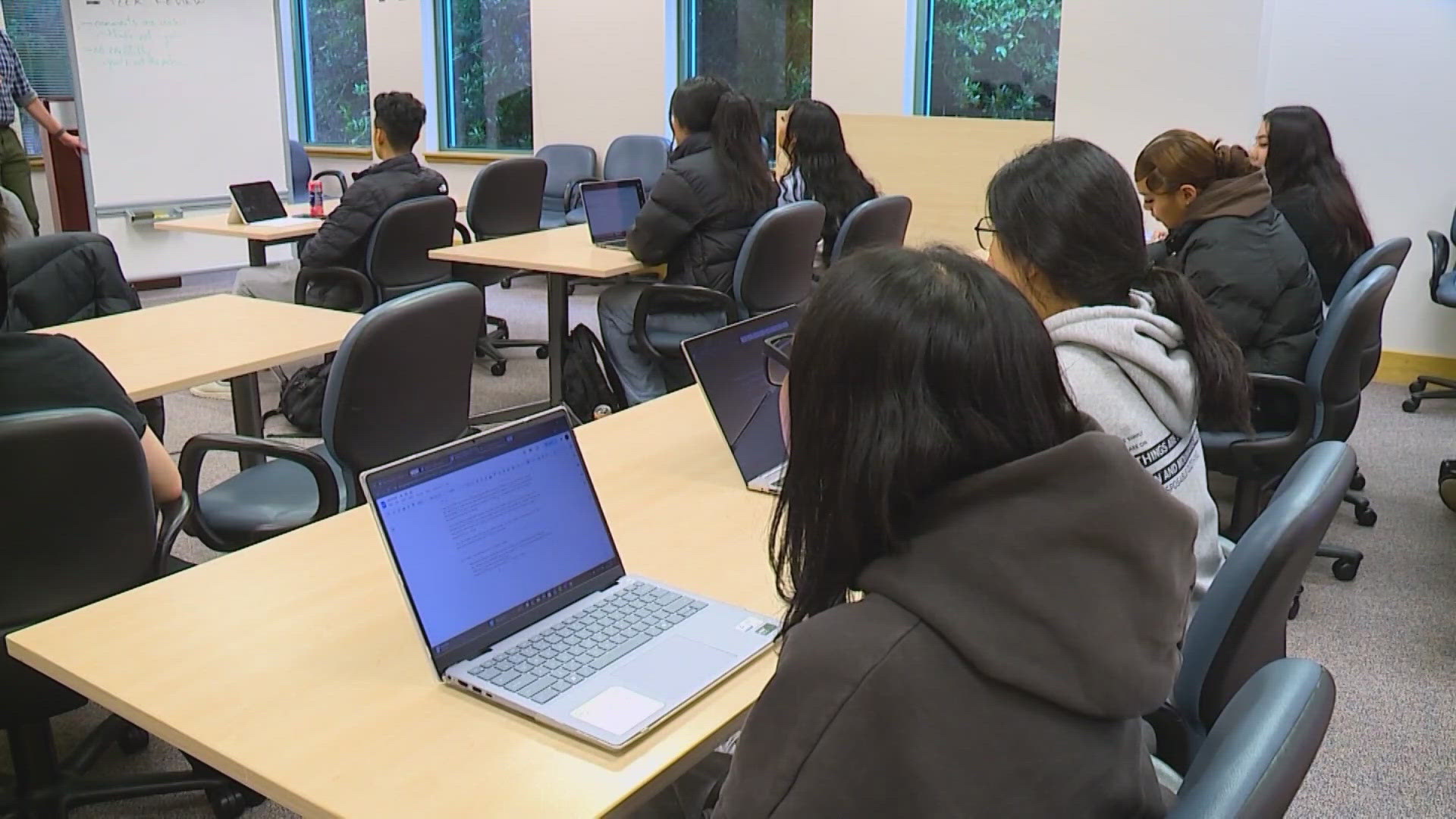SEATTLE — Washington is taking a big step to streamline the college financial aid process.
The state has announced it will guarantee in-state college tuition for low-income students beginning in January 2026. The state plans to use SNAP eligibility to determine if a student qualifies for free tuition.
The state will also notify students as early as 10th grade if they're eligible.
“We’re going to guarantee to you, you won’t have to pay tuition or fees at most public institutions so you can pick a community college, one of the regional universities or UW or WSU. It will be open to you without having to pay tuition," said Michael Meotti, the executive director of the Washington Student Achievement Council.
Every year, high school students who are college bound have to fill out the Federal Application for Student Aid, or FAFSA, to help determine how much college aid they qualify for.
“The FAFSA is a nightmare, last year as we know it was the worst roll out that they’ve ever had," Victor Zamora, the executive director of Minds Matter Seattle, said. Minds Matter Seattle is a college readiness program for low-income high school students. The program provides mentorship to students and helps them navigate FAFSA.
“It’s a tough conversation to have with your family about income and finances," Zamora said.
Meotti said this program fits within the budget of the current program, but does add some additional expenses for staffing and outreach. The federal government will still pick up the bulk of the tab.
“We’re the first state in the country to do this," Meotti said. “When you’re in sixth and seventh grade you usually aren’t thinking about, how am I going to pay for high school? High school is available to you. We’re trying to head the same direction with post secondary.”
Last year's FAFSA rollout caused significant delays for students and universities.
“I think it’s a really good correction of what the state saw, seeing a lot of our students not able to finish the FAFSA because of the issues we had last year with applying and being processed," Zamora said. “We’re going to be able to turn that FAFSA conversation into more of a scholarship conversation and spend more time working on those.”

